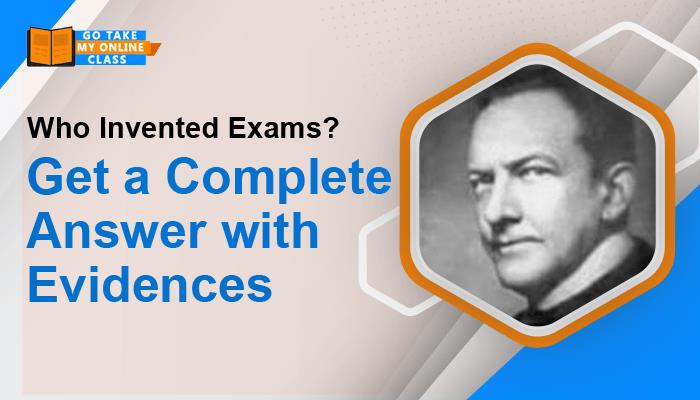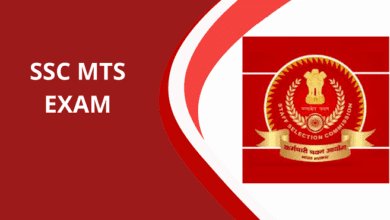Who Invented Exam? The Powerful History of Testing

The concept of exams was first invented in ancient China during the Sui Dynasty (around 605 AD) as part of the Imperial Examination System to select government officials.
This is the direct and factual answer that Google’s rich snippets standardized exams usually highlight. But the full story of how exams began, why they were created, and how they evolved into the modern testing systems we know today is far more fascinating. Let’s explore this journey step by step.
Personal Details Table: Who Invented Exams
| Field | Details |
|---|---|
| Invention of Exams | Ancient China, Sui Dynasty (605 AD) |
| System Name | Imperial Examination System (Keju) |
| Purpose | To select qualified candidates for government service |
| Main Subjects | Confucian classics, literature, moral conduct |
| Spread to Other Regions | Adopted in Korea, Japan, Vietnam, later Europe |
| Modern Adaptation | Standardized tests in 19th & 20th centuries |
| Famous Contributor in West | Henry Fischel (credited in some modern contexts) |
The Birth of Exams: Ancient China’s Imperial System
The earliest documented system of formal examinations was the Keju in China:
-
Established during the Sui Dynasty (581–618 AD).
-
Refined and expanded during the Tang and Song Dynasties.
-
Aimed at recruiting talented individuals into the civil service.
The exam subjects included:
-
Confucian classics.
-
Calligraphy and poetry.
-
Knowledge of governance and law.
👉 This system ensured that merit, rather than family background, played a role in selection—making it revolutionary for its time.
Also Read: crypto batter
Evolution of Exams in Other Cultures
Exams in Ancient India
-
While not identical to China’s system, India had gurukul assessments, where students recited scriptures and demonstrated skills.
-
Oral tests were the norm.
Exams in Islamic Civilization
-
Madrasas conducted evaluations of students in religious studies, mathematics, and philosophy.
-
Certificates of learning (ijazah) were given to qualified students.
Adoption in Europe
-
In the 13th century, the exam concept spread to Europe via contact with China through travelers like Marco Polo.
-
Universities like Oxford and Cambridge introduced written and oral examinations.
Who is Henry Fischel & Why is He Associated with Exams?
Some modern references credit Henry Fischel, a professor in the 19th century, with creating exams in their modern Western academic form.
-
While he did not invent exams themselves, he is recognized for formalizing examinations in higher education in the West.
-
This association sometimes causes confusion online, but historically, China remains the birthplace of exams.
The Purpose of Exams Through History
| Era | Purpose of Exams | Method |
|---|---|---|
| Ancient China (605 AD) | Select civil servants | Written essays on Confucian classics |
| Medieval India | Assess religious & scriptural knowledge | Oral recitations |
| Islamic Golden Age | Certify students (Ijazah) | Oral & written |
| Europe (13th century) | Test university scholars | Oral disputations, later written |
| Modern Age | Standardize learning & qualifications | Written, objective, digital exams |
The Rise of Modern Examinations
By the 19th century, exams became a global standard:
-
Britain: Introduced civil service exams modeled after China’s system.
-
India (under British rule): Implemented examinations for administrative recruitment.
-
United States: Adopted standardized tests like the SAT in the early 20th century.
This period marked the transition from elite-only testing to mass education assessments.
Comparative Table: Ancient vs Modern Exams
| Feature | Ancient Exams | Modern Exams |
|---|---|---|
| Purpose | Select civil servants | Assess academic knowledge & skills |
| Subjects | Confucian classics, governance | Science, arts, languages, technology |
| Accessibility | Restricted to elite males initially | Open to all genders and social classes |
| Format | Essays, poetry, oral tests | Written, MCQs, practicals, digital exams |
| Duration | Could last several days | Hours to multiple sessions |
Why Were Exams Invented?
Exams were invented because societies needed a fair, structured, and objective way to evaluate knowledge and skills.
-
In China: To ensure capable administrators.
-
In Europe: To assess academic mastery.
-
In modern times: To standardize education and job entry.
Global Impact of Exams
-
China – Birthplace of structured exams.
-
India – Adopted civil service exams during British rule.
-
Europe – Brought formalized written tests into higher education.
-
USA – Innovated standardized testing systems like SAT, GRE, GMAT.
The Future of Exams
With technology and AI, exams are transforming into new formats:
-
Online & AI-Proctored Exams – Reducing cheating and increasing accessibility.
-
Skill-Based Assessments – Focus on practical knowledge instead of rote learning.
-
Continuous Assessments – Moving away from one-time exams to project-based evaluations.
Expert Insight: Strengths & Weaknesses of Exams
Strengths
-
Objective assessment.
-
Standardization across large groups.
-
Motivation for structured study.
Weaknesses
-
Encourages rote learning in some systems.
-
May cause stress and anxiety.
-
Not always reflective of real-world skills.
Frequently Asked Questions (FAQs)
Q1: Who invented exams?
Exams were first invented in China during the Sui Dynasty (605 AD) as part of the Imperial Examination System.
Q2: Why were exams created?
To ensure merit-based selection of officials and later to standardize education.
Q3: Did Henry Fischel invent exams?
Not exactly. He helped formalize modern Western exams, but exams originated in ancient China.
Q4: What is the oldest known exam system?
The Keju system in China, which tested candidates on Confucian classics.
Q5: What is the future of exams?
Digital, AI-driven, and skill-based evaluations will replace rote-based traditional testing.
Conclusion
So, who invented exam?
The origin of exams lies in ancient China’s Imperial Examination System (605 AD). It began as a tool to select talented government officials, but over centuries, it evolved into a global system of academic and professional assessments.
Today, exams are both a challenge and an opportunity—they test not just memory, but also problem-solving, creativity, and adaptability. The future promises more personalized and skill-based assessments, moving beyond rote memorization.
👉 As an experienced researcher in history and education, my takeaway is: Exams are not just tests—they are milestones in humanity’s quest for fairness, knowledge, and progress.




